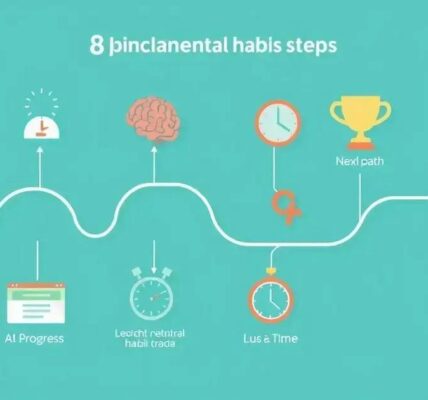In today’s fast-paced world, maintaining focus and concentration can feel like an uphill battle. With countless distractions vying for our attention, it’s no wonder that many of us struggle to stay on task.
However, understanding the principles of focus and concentration can help us reclaim our productivity. In this article, we will explore nine proven strategies that can enhance your ability to concentrate, allowing you to work more efficiently and effectively.
Understanding Focus and Concentration
Understanding focus and concentration is essential to improving your productivity and mental clarity. At its core, focus refers to the ability to direct your attention towards a specific task or goal, while concentration is the mental effort you apply to maintain that focus over time.
Many people confuse these terms, but they play distinct roles in our cognitive processes. Focus is like a spotlight that highlights what we want to achieve, while concentration is the strength of that light—how long we can keep it shining on our chosen task.
To grasp the importance of focus and concentration, think about a time when you were completely absorbed in an activity—maybe reading a book or working on a project. In those moments, distractions fade away, and you become fully engaged. This state of immersion is what we strive for, as it leads to higher quality work and greater satisfaction.
However, various factors can hinder our ability to focus and concentrate. Stress, fatigue, and environmental distractions can all chip away at our mental clarity. Understanding these challenges is the first step toward overcoming them. By recognizing what affects your focus, you can take proactive steps to enhance your concentration.
In the following sections, we will delve into practical strategies to improve your focus and concentration, helping you to achieve your goals with greater ease.
The Science Behind Concentration
The science behind concentration is a fascinating interplay of psychology and neuroscience. At the heart of concentration lies the brain’s ability to filter out distractions and prioritize information. This process involves several key brain regions, including the prefrontal cortex, which is responsible for decision-making and attention control, and the parietal lobe, which helps us process sensory information.
When we concentrate, our brain engages in a process called neuroplasticity, where neural pathways strengthen as we practice focusing on specific tasks. This means that the more you train your brain to concentrate, the easier it becomes over time. Interestingly, concentration can be improved through various techniques, such as mindfulness and cognitive training exercises, which enhance our brain’s ability to focus.
Moreover, studies have shown that our concentration levels can be affected by external factors, like our environment and internal factors, such as our emotional state. For instance, a cluttered workspace can lead to increased distractions, while a calm and organized environment fosters better concentration. Similarly, stress and anxiety can significantly impair our ability to focus, making it crucial to manage these emotions effectively.
Another important aspect of concentration is the role of dopamine, a neurotransmitter that plays a vital role in motivation and reward. When we achieve a goal or complete a task, dopamine is released, reinforcing our ability to concentrate on similar tasks in the future. This connection highlights the importance of setting achievable goals to boost our concentration levels.
Understanding the science behind concentration empowers us to implement strategies that enhance our focus. By recognizing how our brain works and what influences our ability to concentrate, we can take actionable steps to improve our productivity and overall mental well-being.
Creating a Distraction-Free Environment
Creating a distraction-free environment is crucial for enhancing your concentration and focus. Our surroundings have a profound impact on our ability to concentrate, and a cluttered or chaotic space can make it challenging to stay on task. Here are some practical tips to help you design an environment that fosters focus:
1. Declutter Your Workspace: Start by removing unnecessary items from your desk or work area. A clean and organized space can help reduce visual distractions, allowing your mind to concentrate better on the task at hand.
2. Control Noise Levels: Sound can be a significant distraction. If you’re in a noisy environment, consider using noise-canceling headphones or playing soft background music. Some people find that white noise or nature sounds can help them focus better.
3. Optimize Lighting: Proper lighting is essential for maintaining focus. Natural light is ideal, so try to position your workspace near a window. If that’s not possible, invest in good-quality lighting that mimics daylight to reduce eye strain and fatigue.
4. Limit Digital Distractions: In our tech-driven world, digital distractions are everywhere. Turn off non-essential notifications on your phone and computer, and consider using apps that block distracting websites during work hours. Designate specific times to check emails and social media to minimize interruptions.
5. Personalize Your Space: While decluttering is important, adding personal touches can make your workspace more inviting. Consider incorporating a few motivational quotes, plants, or artwork that inspires you. A pleasant environment can enhance your mood and improve your concentration.
6. Establish Clear Boundaries: If you work from home, it’s essential to set boundaries with family or roommates. Communicate your work hours and let them know when you need uninterrupted time to focus.
By taking these steps to create a distraction-free environment, you can significantly improve your ability to concentrate. Remember, a well-designed workspace is not just about aesthetics; it’s about creating a space that supports your productivity and mental clarity.
Time Management Techniques for Better Focus
Effective time management techniques are essential for improving focus and ensuring that you make the most of your productive hours. By organizing your tasks and allocating your time wisely, you can create a structure that enhances concentration. Here are some practical techniques to help you manage your time better:
1. The Pomodoro Technique: This popular method involves breaking your work into short intervals, typically 25 minutes, followed by a 5-minute break. After four intervals, take a longer break of 15 to 30 minutes. This approach helps maintain focus while also preventing burnout, as regular breaks allow your brain to recharge.
2. Prioritize Tasks: Use a prioritization method like the Eisenhower Matrix to categorize your tasks into four quadrants: urgent and important, important but not urgent, urgent but not important, and neither urgent nor important. This helps you focus on what truly matters and allocate your time effectively.
3. Set SMART Goals: When planning your tasks, ensure they are Specific, Measurable, Achievable, Relevant, and Time-bound (SMART). This clarity helps you stay focused on your goals and makes it easier to track your progress.
4. Time Blocking: Allocate specific blocks of time for different tasks or activities throughout your day. By scheduling focused work periods for particular tasks, you create a sense of structure and accountability, making it less likely that you’ll get sidetracked.
5. Limit Multitasking: While it might seem efficient, multitasking can actually reduce your overall productivity and focus. Instead, concentrate on one task at a time to enhance your ability to complete it effectively. Once you finish a task, move on to the next one.
6. Review and Reflect: At the end of each day or week, take some time to review what you accomplished. Reflecting on your productivity can help you identify patterns and areas for improvement, allowing you to adjust your time management strategies accordingly.
By implementing these time management techniques, you can create a more focused and productive work environment. Remember, the key to better focus is not just about managing your time but also about managing your energy and attention effectively.
Mindfulness and Meditation Practices
Incorporating mindfulness and meditation practices into your daily routine can significantly enhance your focus and concentration. These techniques help train your mind to stay present, reduce stress, and improve your overall mental clarity. Here are some effective practices to consider:
1. Mindful Breathing: One of the simplest forms of mindfulness is focusing on your breath. Take a few minutes each day to sit quietly and pay attention to your breathing. Inhale deeply through your nose, hold for a moment, and exhale slowly through your mouth. This practice calms your mind and helps you center your thoughts.
2. Body Scan Meditation: This technique involves mentally scanning your body from head to toe, paying attention to any sensations or areas of tension. By bringing awareness to your physical state, you can release stress and improve your ability to concentrate. Try to do this for 5-10 minutes, focusing on relaxing each part of your body.
3. Guided Meditations: If you’re new to meditation, guided sessions can be incredibly helpful. Many apps and online platforms offer guided meditations that focus on enhancing concentration and mindfulness. These sessions often include soothing music and prompts to help you stay engaged.
4. Mindful Walking: You don’t have to sit still to practice mindfulness. Try taking a slow, deliberate walk while paying attention to your surroundings. Notice the sights, sounds, and sensations as you move. This practice not only enhances your focus but also encourages physical activity.
5. Journaling: Writing can be a powerful mindfulness practice. Spend a few minutes each day reflecting on your thoughts, feelings, and experiences. This helps clear your mind and allows you to focus better on your tasks. Plus, journaling can help you identify patterns in your thinking that may hinder your concentration.
6. Consistency is Key: To reap the benefits of mindfulness and meditation, consistency is crucial. Aim to incorporate these practices into your daily routine, even if it’s just for a few minutes. Over time, you’ll likely notice improvements in your ability to concentrate and manage stress.
By embracing mindfulness and meditation practices, you can cultivate a greater sense of awareness and presence in your daily life. These techniques not only enhance your focus but also contribute to your overall well-being, making it easier to tackle challenges with a clear and calm mind.
Nutrition and Its Impact on Concentration
The connection between nutrition and concentration is often underestimated, yet what we eat plays a significant role in our cognitive function and mental clarity. A balanced diet can enhance focus, while poor nutrition can lead to fatigue and decreased concentration. Here are some key nutritional factors to consider:
1. Omega-3 Fatty Acids: These essential fats are crucial for brain health. Found in fatty fish like salmon, walnuts, and flaxseeds, omega-3s support cognitive function and improve memory. Incorporating these foods into your diet can help enhance your concentration.
2. Antioxidant-Rich Foods: Foods high in antioxidants, such as berries, dark chocolate, and leafy greens, combat oxidative stress in the brain. This can lead to improved cognitive function and better focus. Try adding a variety of colorful fruits and vegetables to your meals for optimal brain health.
3. Whole Grains: Whole grains like oats, brown rice, and quinoa provide a steady release of glucose, which is essential for maintaining energy levels and concentration. Unlike refined carbohydrates, which can cause energy spikes and crashes, whole grains help keep your mind sharp throughout the day.
4. Hydration: Staying hydrated is vital for optimal brain function. Even mild dehydration can impair concentration and cognitive performance. Aim to drink enough water throughout the day, and consider incorporating hydrating foods like cucumbers, oranges, and watermelon into your diet.
5. Limit Sugary and Processed Foods: While sugary snacks may provide a quick energy boost, they often lead to crashes that can hinder your ability to concentrate. Processed foods can also contain additives that negatively impact brain health. Focus on whole, nutrient-dense foods to support your concentration.
6. Balanced Meals: Aim to create balanced meals that include a combination of protein, healthy fats, and complex carbohydrates. This balance helps regulate blood sugar levels and provides sustained energy, which is crucial for maintaining focus throughout the day.
By paying attention to your nutrition, you can significantly impact your concentration and overall cognitive function. Making mindful food choices not only supports your brain health but also enhances your ability to focus on tasks, leading to improved productivity and mental clarity.
Physical Exercise and Brain Health
Physical exercise is not just beneficial for your body; it’s also a powerful tool for enhancing brain health and improving concentration. Regular physical activity has been shown to have numerous positive effects on cognitive function, and here’s how:
1. Increased Blood Flow: Exercise boosts blood circulation, delivering more oxygen and nutrients to the brain. This increased blood flow helps promote brain health and can enhance cognitive functions such as focus and memory.
2. Neurogenesis: Engaging in regular physical activity stimulates the production of new neurons in the brain, a process known as neurogenesis. This is particularly prominent in the hippocampus, an area associated with learning and memory. More neurons can lead to improved concentration and cognitive flexibility.
3. Release of Neurotransmitters: Physical exercise triggers the release of neurotransmitters, such as dopamine and serotonin, which play key roles in mood regulation and mental clarity. These chemicals can enhance your ability to concentrate and keep your mind sharp.
4. Stress Reduction: Exercise is a natural stress reliever. It helps reduce levels of the stress hormone cortisol, which can negatively impact concentration. By managing stress through physical activity, you create a more conducive environment for focus and productivity.
5. Improved Sleep Quality: Regular exercise can lead to better sleep quality, which is essential for cognitive function. A well-rested brain is more alert and capable of maintaining concentration throughout the day. Aim for at least 30 minutes of moderate exercise most days of the week to reap these benefits.
6. Social Interaction: Participating in group exercises or team sports can provide social interaction, which has been shown to improve mental health and cognitive function. Engaging with others can also enhance motivation and make exercising more enjoyable.
Incorporating physical exercise into your daily routine is a simple yet effective way to boost your brain health and improve concentration. Whether it’s a brisk walk, a yoga session, or a gym workout, finding an activity you enjoy can make all the difference in maintaining focus and enhancing overall cognitive performance.
Using Technology to Improve Focus
In our tech-driven world, leveraging technology can be a game-changer for improving focus and concentration. With the right tools and apps, you can create an environment that minimizes distractions and enhances productivity. Here are some effective ways to use technology to your advantage:
1. Focus-Enhancing Apps: There are numerous apps designed to help you stay focused. For example, apps like Forest encourage you to stay off your phone by growing a virtual tree as long as you don’t use your device. Other apps, like Focus@Will, provide music specifically designed to improve concentration and productivity.
2. Time Management Tools: Utilize digital calendars and task management tools like Trello or Todoist to organize your tasks and set deadlines. These tools help you visualize your workload and prioritize tasks, making it easier to focus on what needs to be done.
3. Website Blockers: If you find yourself frequently distracted by social media or other websites, consider using website blockers like StayFocusd or Cold Turkey. These tools allow you to restrict access to distracting sites during specific times, helping you maintain your focus on important tasks.
4. Mindfulness and Meditation Apps: To enhance your concentration, consider using apps like Headspace or Calm that offer guided meditation and mindfulness exercises. These practices can help clear your mind, reduce stress, and improve your ability to concentrate.
5. Digital Note-Taking: Tools like Evernote or Notion allow you to take organized notes and keep track of your ideas. By digitizing your notes, you can easily search for information and stay organized, which helps maintain your focus when working on projects.
6. Virtual Focus Groups: Consider joining online communities or forums that focus on productivity and concentration. Engaging with others who share similar goals can provide motivation and accountability, helping you stay focused on your tasks.
By embracing technology, you can create a more focused and productive work environment. The key is to find the right tools that work for you and to use them intentionally to enhance your concentration and overall efficiency.
Setting Realistic Goals for Enhanced Concentration
Setting realistic goals is a crucial step toward enhancing your concentration and overall productivity. When your goals are achievable and clearly defined, it becomes easier to maintain focus and make steady progress.
Here are some effective strategies for setting realistic goals:
1. Break Goals into Smaller Tasks: Large goals can feel overwhelming and lead to procrastination. Break them down into smaller, manageable tasks that you can tackle one at a time. This approach not only makes the process less daunting but also provides a sense of accomplishment as you complete each task.
2. Use the SMART Criteria: Ensure your goals are Specific, Measurable, Achievable, Relevant, and Time-bound (SMART). This framework helps clarify your objectives and provides a clear roadmap for achieving them. For example, instead of saying, “I want to read more,” a SMART goal would be, “I will read one book per month for the next three months.”
3. Set Priorities: Not all goals are created equal. Identify which goals are most important to you and prioritize them. Focusing on a few key objectives at a time allows you to channel your energy and concentration effectively, rather than spreading yourself too thin.
4. Be Flexible: Life can be unpredictable, and sometimes your goals may need to be adjusted. Be open to reevaluating and modifying your goals as necessary. Flexibility allows you to adapt to changing circumstances while still maintaining your focus on what matters most.
5. Celebrate Small Wins: Acknowledge and celebrate your progress, no matter how small. Recognizing your achievements boosts motivation and reinforces your ability to concentrate on future tasks. Consider keeping a journal to track your accomplishments and reflect on your journey.
6. Set Time Limits: Assign specific time frames to your goals to create a sense of urgency. Time limits can help you stay focused and prevent procrastination. For instance, if you have a project due in two weeks, break it down into daily tasks and allocate time each day to work on it.
By setting realistic goals, you create a structured approach to your work that enhances concentration and productivity. Remember, the key is to make your goals achievable and to maintain a positive mindset as you work toward them. This way, you can cultivate a focused and motivated environment that supports your success.
Conclusion
In conclusion, enhancing your focus and concentration is a multifaceted journey that involves understanding the science behind cognitive function, creating a supportive environment, and implementing effective strategies.
By incorporating mindfulness practices, maintaining proper nutrition, engaging in regular physical exercise, and utilizing technology wisely, you can significantly improve your ability to concentrate.
Moreover, setting realistic goals and managing your time effectively lays the groundwork for sustained focus.
Remember, the path to better concentration is not just about working harder; it’s about working smarter and being intentional with your efforts.
By applying these techniques, you can cultivate a more productive mindset, enabling you to tackle tasks with clarity and confidence.
Ultimately, the effort you invest in improving your focus will pay off in both your personal and professional life, leading to greater achievements and a more fulfilling experience.
Frequently Asked Questions about Focus and Concentration
What are some effective techniques to improve focus?
Techniques such as the Pomodoro Technique, mindfulness practices, and creating a distraction-free environment can significantly enhance your focus.
How does nutrition impact concentration?
Nutrition plays a vital role in concentration. Foods rich in omega-3 fatty acids, antioxidants, and whole grains can boost brain health and improve focus.
Can physical exercise really help with concentration?
Absolutely! Regular physical exercise increases blood flow to the brain, stimulates neurogenesis, and reduces stress, all of which contribute to better concentration.
What role does technology play in improving focus?
Technology can enhance focus through apps that promote productivity, time management tools, website blockers, and mindfulness applications.
How can I set realistic goals to enhance my concentration?
Set SMART goals by breaking them into smaller tasks, prioritizing them, and being flexible. Celebrating small wins can also help maintain motivation.
Is mindfulness effective for improving concentration?
Yes, mindfulness practices, such as meditation and mindful breathing, can help clear your mind, reduce stress, and improve your ability to concentrate.



